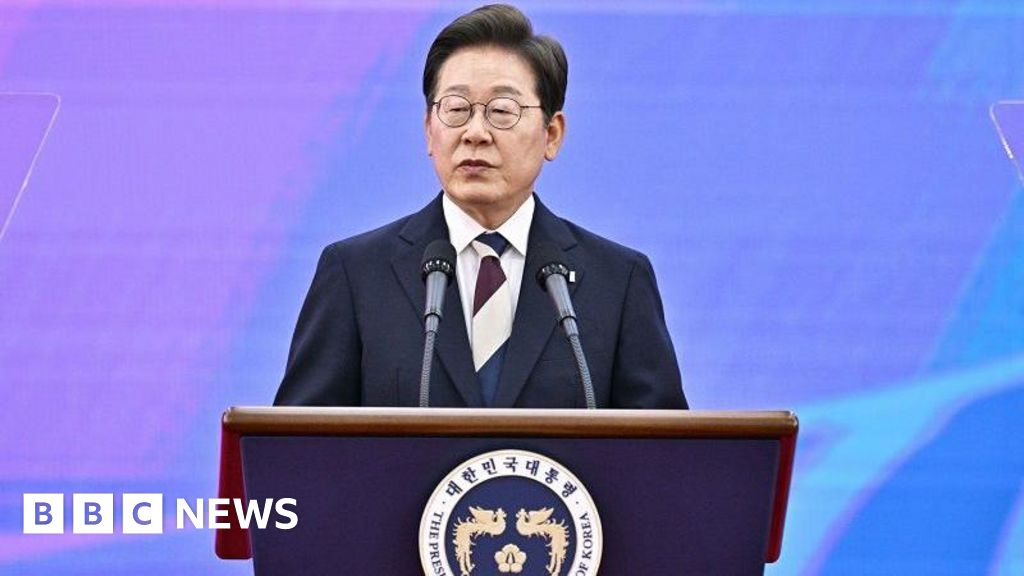Lee Jae-myung’s Inauguration and Pledges for Unity
Shortly after being elected as South Korea’s president, Lee Jae-myung emphasized his commitment to “unite the people” during his inauguration speech on Wednesday. The 61-year-old secured 49.4% of the vote in a quick election, marking a significant rejection of his opponent, Kim Moon-soo, who was affiliated with the impeached president Yoon Suk Yeol.
Yoon faced months of political upheaval due to his attempts to impose martial law, which ultimately led to his impeachment. As Lee steps into office, he is tasked with the significant responsibility of not only fostering national unity but also managing the complex relationship with the United States amid President Donald Trump’s unpredictable diplomatic approach.
In a direct reference to his predecessor, Lee assured in his speech that he would prevent any threats to the democratic institutions of the country, vowing to end divisive politics. Speaking to an audience near the parliament, Lee condemned the political instability as a result of “factions with no intent to serve the people’s interests” and promised to establish a “flexible, pragmatic government,” initiating an emergency economic task force immediately.
This election signifies a remarkable resurgence for Lee, who has been embroiled in numerous political scandals, including corruption investigations and family disputes. Analysts suggest his victory reflects public anger toward the previous administration, particularly regarding the December 3 martial law incident, which many viewed as a threat to democracy, according to National Assembly Speaker Woo Won-shik.
Public sentiment echoes this sentiment, as political consultant Park Sung-min noted that voters were not necessarily endorsing Lee’s agenda but were more so expressing their frustration at the collapse of democratic norms. Supporters gathered outside parliament to witness Lee’s inauguration, voicing optimism about his promises for a fairer society where justice prevails.
However, Lee also faces significant challenges. He is currently on trial in the Supreme Court for alleged electoral violations, a proceeding that was delayed until after his election to prevent interference. If found guilty, it remains uncertain how this will impact his presidency, as laws protect sitting presidents from criminal prosecutions except under specific circumstances.
Dealing with a deeply divided nation, Lee’s call for unity comes at a time when political polarization is at an all-time high, a legacy of both the Moon and Yoon administrations. While he aims to reconcile differences, he must also navigate potential backlash from a strong support base of the former president, ensuring to address the grievances of those who still feel disenfranchised.



